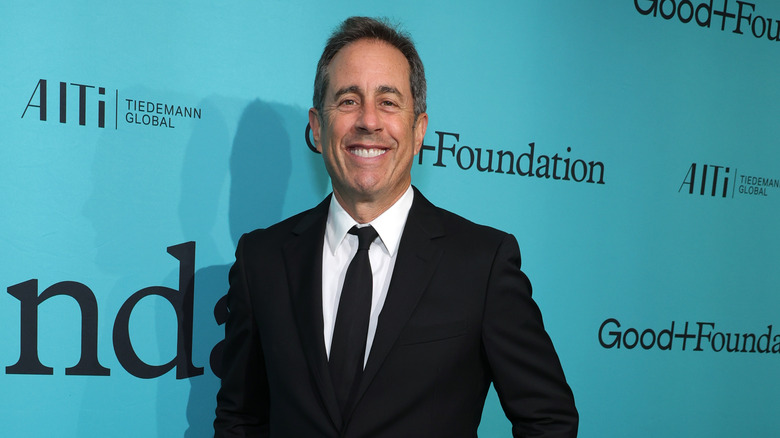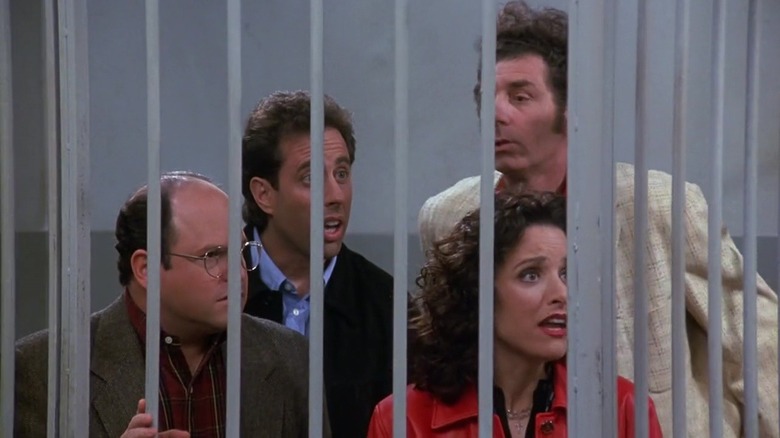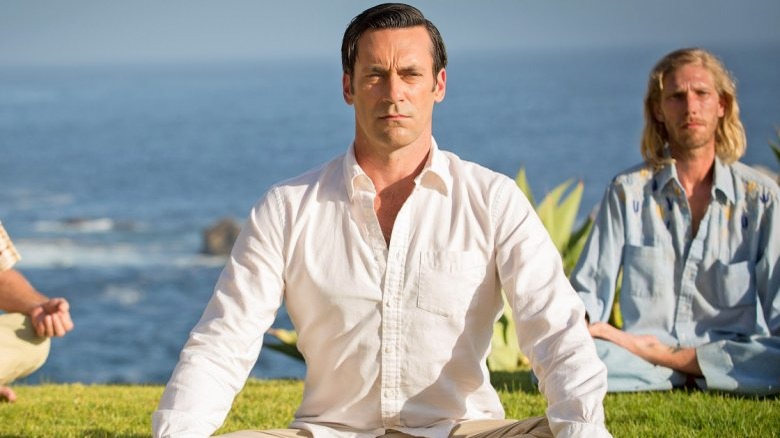Jerry Seinfeld's Favorite Series Finale Is Probably Not What You Think
Jerry Seinfeld's all-time favorite series finale definitely isn't "Seinfeld."
In a feature in GQ ahead of the release of "Unfrosted," the Pop-Tarts movie written and directed by Seinfeld (where he also stars as Kellogg's employee Bob Cabana), Seinfeld opened up about the series finale of his eponymous show, which he recently spoofed during the season finale of Larry David's "Curb Your Enthusiasm." Asked if the "Seinfeld" finale bothers him still, Seinfeld said actually does.
"A little bit, yeah," the comedian said before qualifying his statement. "I don't believe in regret. I think it's arrogant to think you could have done something different. You couldn't. That's why you did what you did." Then, Seinfeld opened up about the series finale he really loves — AMC's "Mad Men."
"I feel 'Mad Men' was the greatest," Seinfeld said. "A lot of people like the Bob Newhart one. Mary Tyler Moore was okay. I think Mad Men was the greatest final moment of a series I've ever seen. So satisfying. So funny." Perhaps referencing the creators of "Mad Men" — Seinfeld wasn't clear — he continued, "And they said that they had sat and watched the Seinfeld finale, trying to figure out what went wrong. And it was obviously about the final scene, leaving them in the jail cell..."
What happened in the Seinfeld finale?
So why didn't people like the series finale of "Seinfeld?" Throughout nine seasons, audiences watched as Jerry Seinfeld (playing a fictionalized version of himself), Elaine Benes (Julia Louis-Dreyfus), George Costanza (Jason Alexander), and Cosmo Kramer (Michael Richards) get into all sorts of wild scrapes, and the finale sees them all leave New York City to go on vacation in Paris. Due to plane problems, they end up in stranded the small hamlet of Latham, Massachussetts and get arrested after they decline to help a man getting carjacked, laughing at him instead; apparently, they've violated the town's Good Samaritan law by not helping. From there, everyone they've ever wronged appears to testify against them, leaving them in prison.
In the profile, Seinfeld did defend the finale a bit, saying that he doesn't think the characters are actually "in hell" or that they're just terrible people. "See, I don't agree with any of that," Seinfeld said. "I think we were affected by some things that people had said, that they were selfish or whatever. And looking back on it, I think they were great! I love them. First of all, you're not doing comedy without self-directed individuals. That's an essential element of comedy, since Shakespeare and forever. You can't do comedy without selfish people. That's what people relate to."
The Mad Men series finale is one of the best of all time
The inverse to the widely disliked "Seinfeld" finale, the "Mad Men" series finale received near-universal acclaim. In 2015, it was anyone's guess as to where handsome ad executive Don Draper (Jon Hamm) would end up; after three marriages and countless mistresses, Don's family is in complete disarray by the time the seventh season ends in "Person to Person," and his professional life isn't much better. At this point, everyone knows that Don's life is built on a complete lie — his real name is Dick Whitman, and he stole the identity of Don Draper after the real man died in the Korean War. Disheveled, drunk, and down on his luck, Don speaks briefly to his close friend and protegé Peggy Olson (Elisabeth Moss) before disappearing completely ... only to end up on a hilltop at a commune, sitting peacefully in the sun.
The shot of Don meditating is followed by him opening eyes with a knowing look — and then, creator Matthew Weiner makes the stunningly brilliant idea to play the famous "I'd Like to Buy the World a Coke" commercial. The suggestion that Don took his experiences at a peaceful retreat and turned them into capitalistic profit is absolutely incredible, and there's no question that Weiner sticks the landing with "Person to Person." Apparently, Jerry Seinfeld thinks so too.


